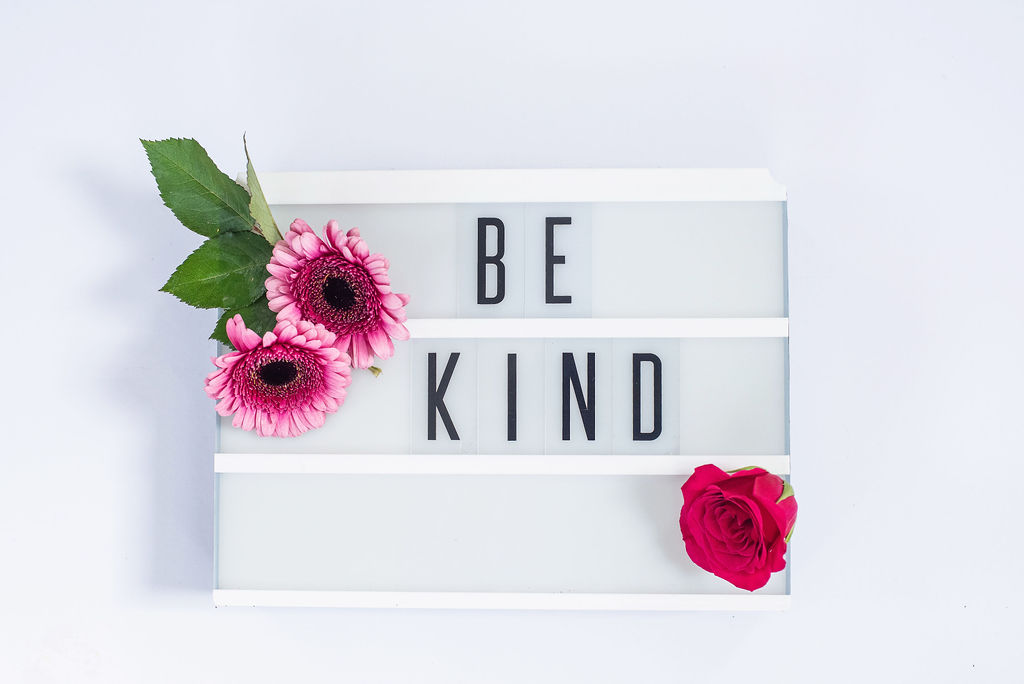In the past, I’ve delivered weight management services which had weight loss at the heart. I’ve worked alongside other healthcare professionals in specialist NHS services, to support people on a journey to better health through weight loss. It has never been simply about offering dietary advice; we have to look at the interplay between the body and the mind, and underlying beliefs that are driving, often destructive, unhelpful behaviours towards our bodies.
However, I’ve never felt permission until recently, to say actually, weight loss doesn’t have to, and shouldn’t be the goal of treatment.
Extensive clinical trials, often write in the small print about the levels of weight gain that followed for the majority of participants, but somehow we still give ourselves permission to ignore this bit.
Two dietitians, Evelyn Tribole and Elyse Resch certainly acknowledge this, in their model for Intuitive Eating, which has gained traction and research over the years. So, what is it?
It has ten guiding principles which serve to reconnect the body and mind when it comes to food, and address the toxicity of diet culture. It’s a self-care framework, that is weight-inclusive and evidence-based, allowing a person to go on their own self-paced journey to honour their body and understand what it needs from a physical and psychological perspective.
1 – Reject the diet mentality
At the heart of this is rising above that mantra that everyone is sucked into, that when a diet fails, it’s you – you’ve failed to follow it, you’ve lacked the will power. It’s your fault.
It’s none of this – the diet has failed you because it was never destined to work in the first place. Those rules you followed, or the diet plan you adhered to, stopped you listening to your own body. It made you believe you didn’t know what to do, and that that book had all the answers. It didn’t. There are many biological reasons why it just didn’t work.
2 – Honor your hunger
Chaotic, sometimes emotional eating can be a daily occurrence for many of us. But when dieting below our body’s fuel need, it is near on impossible to work out what is physiological versus emotional hunger. If a biological cascade has been put in place to get your blood glucose levels up, no amount of will power or stubbornness will override that, and the healthy snack you convince yourself will satisfy you, just won’t. This is primal. It’s not rationale human stuff.
With excessive hunger, comes the flood gates analogy – where we then proceed to eat beyond the point of fullness, in an amalgamation of guilt, frustration, desire, fulfilment, ‘I’ve blown it now’ mentality.
3 – Make Peace with Food
Forbidden fruit is so much more appealing. Following a set of rules, designed for weight loss, by someone else, can initially feel like a relief. Oh, thank god, someone else is going to tell me how to do this, because I haven’t a clue. But in trying to ignore desires for certain foods, they suddenly become the only damn thing you can think about. Thoughts of food fill your head all day, every day. You’re heading down a waterfall towards the inevitable ‘I give in’ pool at the bottom. I have clients tell me that leading up to an appointment their initial thought is they must make the most of the next few days, before things shift gears again. And yet, removing this pressure to conform, or avoid certain foods, has the opposite effect of what you’d think. I can have that food as often as I want. What a relief, but do I really want it as much as I thought I did, now I know I can have it, all the time?
4- Challenge the food police
Often people think dietitians are the food police, judging your food choices, giving you a ticking off if you put a foot wrong. In reality, the food police inside our own heads, are far worse. We are our harshest critic, and the story we put on repeat in our heads, makes us feel like sh*t. And we listen it to it – all the time. How exhausting. And in case it’s not obvious by now, I’m not the food police!
5- Discover the satisfaction factor
Eating is designed to a pleasurable experience. We’re supposed to feel satisfied and content. The brain remembers this joyful interaction with food, so that we’re prompted to do it again and again. But it’s not just the food, it’s the environment too. And often these two things aren’t put together very well – the most satisfying foods, are consumed quickly and yet we’ll pick over a unappetising salad for hours.
6 – Feel your fullness
How your body recognises and responds to hunger and fullness is largely controlled by your genes. You are born with an innate ability to recognise when you are satisfied, but this quickly disappears when others start to control how much you’re ‘allowed’ to consume. Add onto this the layer of judgmental diet culture that tells you you ought to be satisfied if you eat like this, or you only need that much, and you switch off those signals, override them, ignore them. Over time they also get a bit screwed up and stop working for you. Until you tune back in.
7- Be Kind
Depriving your body of calories can in itself trigger loss of control, which can feel like emotional eating. Working out if there is a true connection to food as a coping strategy for other emotions, is very difficult, when the body’s drive to eat is so strong.
Emotional eating is never the issue in itself, it’s the coping mechanism (and we all have those) in some form. Food provides a plug perhaps, to those feelings we are trying to suppress, but unless those are dealt with and worked through, the emotional eating will never fix anything.
This takes time, but whilst you’re on that journey, being kind to yourself and accepting of the waves of different feelings that wash over you with a curious, not judgemental tongue is so much more helpful.
8 – Respect your Body
All bodies are deserving of the same treatment and dignity – but a size-ist culture unfortunately forces many to want to change their genetically predetermined shape or size, to one that seems to conform better with society. In this vain attempt to look a certain way, body size often shifts dramatically and years of dieting, move it away from it’s original set point. Weight has the same genetic blueprint as your height or shoe size – but society doesn’t force you to change those and the shoe size reduction industry isn’t worth 60 billion dollars.
9 – Movement – Feel the Difference
The connection between exercise to burn calories which we consume leads to a huge disconnect and often negative association with activity. The simple model of exercising to burn calories, can turn exercise into a punishment, not a joy. We switch off from how our body feels when we move it in a way that feels good, and the mental advantages that come from doing something that makes us feel good.
10 – Honor your Health
Eating in tune with your body, does not involve eating a whole bunch of foods of low nutritional quality. Of course there are foods that nourish our soul, perhaps more than our physical or mental health, but there is room in the diet for all of it. If you eat foods lacking nutrients or fibre too often, in truth, your body won’t feel so good. You may feel lethargic or constipated, or notice changes to your skin and hair. You may also notice you’re lower in mood. The difference is tuning into what feels good for your body, without judgement or pressure from a set of rules that someone else has validated as essential. What is YOUR body telling you it needs and can you honour that?
What now?
Reading this might leave you feeling interested, but a little lost? To find out more about how I work with people 1-1, take a look at my Anchor Programme and book a call with me.
Or let me know if you’re interested in my up coming course, which will be launching in the Autumn.


Leave A Comment